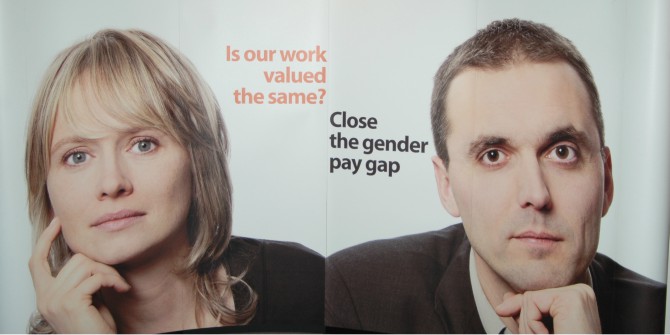The Middle East and North Africa (MENA) may be centuries away from achieving gender equality, but the region has adopted legal reforms that have been vastly improving women’s labour force participation and economic opportunities. Souad Mohamed writes that local governance should now be the focus of researchers and policymakers interested in having the greatest impact on women’s advancement.
In 2022, the World Economic Forum (WEF) produced a statistic that unsettled the Arab world irrevocably. The WEF’s Global Gender Gap Report estimated that it would take the MENA Region 115 years to reach gender parity. Although the report suggests that the region is centuries away from attaining gender equality, the Arab world has made commendable efforts in recent years to close the gender gap and elevate the status of women within society. For instance, according to the World Bank’s annual study ‘Women, Business and the Law’, the MENA region was among the top two regions to implement legal reforms that have positively impacted women’s labour force participation and widened women’s economic opportunities. Nonetheless, although Arab women are now advancing at work, numerous barriers still remain.
One area where progress has been slow is in the representation of women in local governance. But why should we grant more research attention to it? Local governance is firmly rooted in decentralisation; allowing citizens to manage their own local affairs. When these organisations are inclusive, transparent, and representative, the needs of its communities are accurately reflected in the policies legislated. International research on local governance, such as the work of Mirya Holman who investigates female municipal leaders’ influence on policymaking in American cities, suggests that women’s equal participation and representation within these local decision-making processes is undoubtedly advantageous for cities and its economy. I was recently pleased to see the emphasis stressed in the World Economic Forum’s Annual Meeting (2023) on the dire need for more gender-diverse leadership across the economy, politics, and civil society.
However, despite emerging evidence and the numerous attempts to create better pathways to advance more women into senior leadership positions, the gender gap within local governance persists, both internationally and within the MENA region. As the year 2030 fast approaches, it is not only timely, but urgent to tackle the gender imbalance within the MENA region’s local governance in order to accelerate the region’s positive trajectory and assist its growth.
Whilst the international studies devoted to investigating the benefits of gender parity within national governments and local councils may provide a strategic framework for MENA countries to utilise and learn from, it also essential to take into consideration the unique political and cultural environment of the region. A close focus on the plethora of reforms and legislations implemented within the Kingdom of Saudi Arabia conveys this notion that there is no one-size-fits-all approach to tackling the gender imbalance.
In line with Vision 2030, the Kingdom’s national development plan, evidence suggests that Saudi Arabia is now on a “fast track” to attaining gender equality. The Vision aims to upskill and empower women by providing them with the opportunities to build their futures, contribute to solving global challenges and the development of society. In 2016, the Vision set the target of increasing the employment rate among Saudi women from 22% to 30% by 2030. In 2022, the Arab world hailed the Kingdom’s workforce statistics, as women now comprise 33.6% of the workforce.
The Kingdom has also made remarkable advances within the political field. Female members that make up the consultative body of the Shura council (equivalent to the parliamentary system), steadily increased from 0% in 2005, to 20% in 2021, 2022. These changes made to the infrastructure of the Kingdom’s governmental body is undoubtedly a step in the right direction. Policy outcomes are often determined by those in positions of power. If governmental spheres are gender biased, policy outcomes will fail to capture the needs of society. It is therefore imperative to continue tackling the gender imbalance within local governance in order to continue the Kingdom’s positive trajectory.
Since the existing body of research devoted to investigating women’s impact on the policy process is limited to international regions, it is essential to create research and build knowledge in the local language, Arabic. Translating existing studies and publishing rigorous high-quality research that is country-specific and considers all the idiosyncratic barriers faced by women in the MENA region is a prerequisite to continue the journey forward to the new Arab world. In addition, local government cultures must be taken into consideration in order to engender active policies and practices that will empower and benefit Arab women.
Whilst gender diversity within local government will undoubtedly benefit the infrastructure of society, it is also crucial to change social attitudes towards women participating within the field. International research can be used as a starting point to inform gender-sensitive policies, but cultural values play a significant role in curbing political participation. Furthermore, societal stereotypes are also a hindrance to women’s career choices. The role of local governance can play a vital role in deconstructing the limiting beliefs held by women and challenging the current status quo. As we have witnessed over the past decade, the Saudi Arabian government has initiated numerous programs to empower women by implementing bylaws and legislations that have catapulted women’s professional growth and contribution to the economy.
However, despite these favourable advances, even when women do occupy senior leadership positions within local government, there is evidence of poor retention rates due to the difficulties that arise from work-life imbalance. Whilst the Kingdom’s efforts to diversify the political sphere have been effective, it is also essential to address cultural attitudes and gender stereotypes that make it difficult for women to succeed in the workforce. Government policies can help to deconstruct these stereotypes by creating inclusive, unbiased curriculums that are based on critical thinking and encourage leadership for both male and females. Although gender stereotypes can be deconstructed at an early age, childcare and maternal support for women through the implementation of policies and legislations are also vital to attaining gender equality. It is consequently imperative to tackle the gender imbalance in local governance in order to bring these policies to light.
Local governance is a microcosm of society. In other words, if local governance is gender biased, this will be reflected in the structure of wider society. Greater involvement of women in local governance will help ensure that women’s interests and needs are met. The time for action is now, and it is up to governments, civil society organisations, and individuals to work together to achieve gender balance in local governance in the MENA region. By doing so, they can help to create a more inclusive, representative, and prosperous future for all.
♣♣♣
Notes:
- This blog post represents the views of its author(s), not the position of LSE Business Review or the London School of Economics and Political Science .
- Featured image by Mohd Azli Abdul Malek, under a CC-BY-NC-SA 2.0 licence
- When you leave a comment, you’re agreeing to our Comment Policy.





